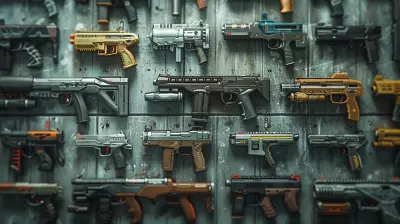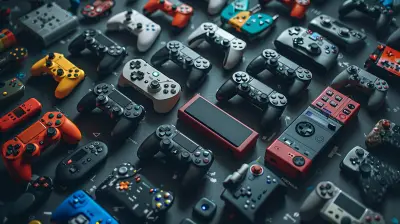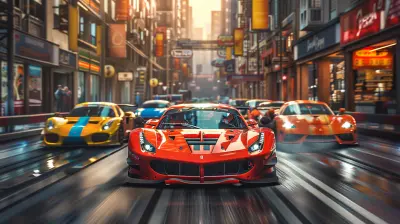Behind the Scenes of Game Developers' Event Design
2 July 2025
Ever wondered how game developers pull off those jaw-dropping events that leave us buzzing with excitement for days? Whether it’s an in-game celebration, a huge competition, or even a teaser for a new release, these events don’t just happen by magic. There's a small army of creatives, coders, and visionaries working tirelessly behind the scenes to craft experiences we can’t stop talking about. But what does it really take to design such events? Let’s dive into the fascinating world behind the curtain.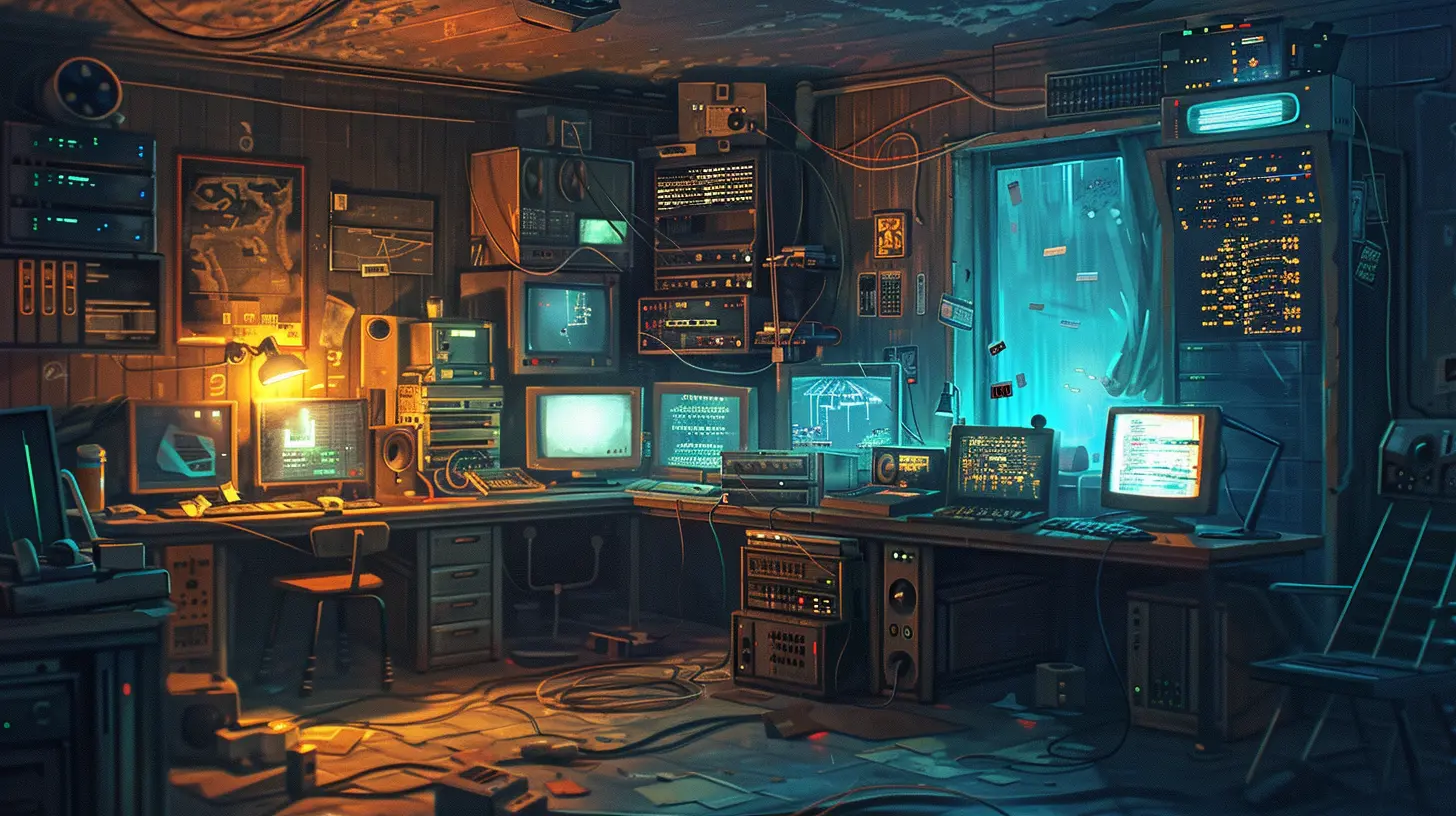
What Are Game Developers' Events?
Before we get into the nitty-gritty, let’s define what we’re talking about. Game developers’ events refer to the special live or in-game activities designed to engage players. Think of seasonal updates like Halloween-themed quests, massive esports tournaments, or even developer-hosted AMAs that build buzz and strengthen community ties. These events serve one main goal—to make players feel part of something bigger, something special.But here’s the kicker: It’s not just about slapping together some flashy effects and calling it a day. Nope. Every element, from the tiniest animation to the overarching story behind an event, is meticulously planned. And trust me, it’s not as easy as smashing the "Go Live" button.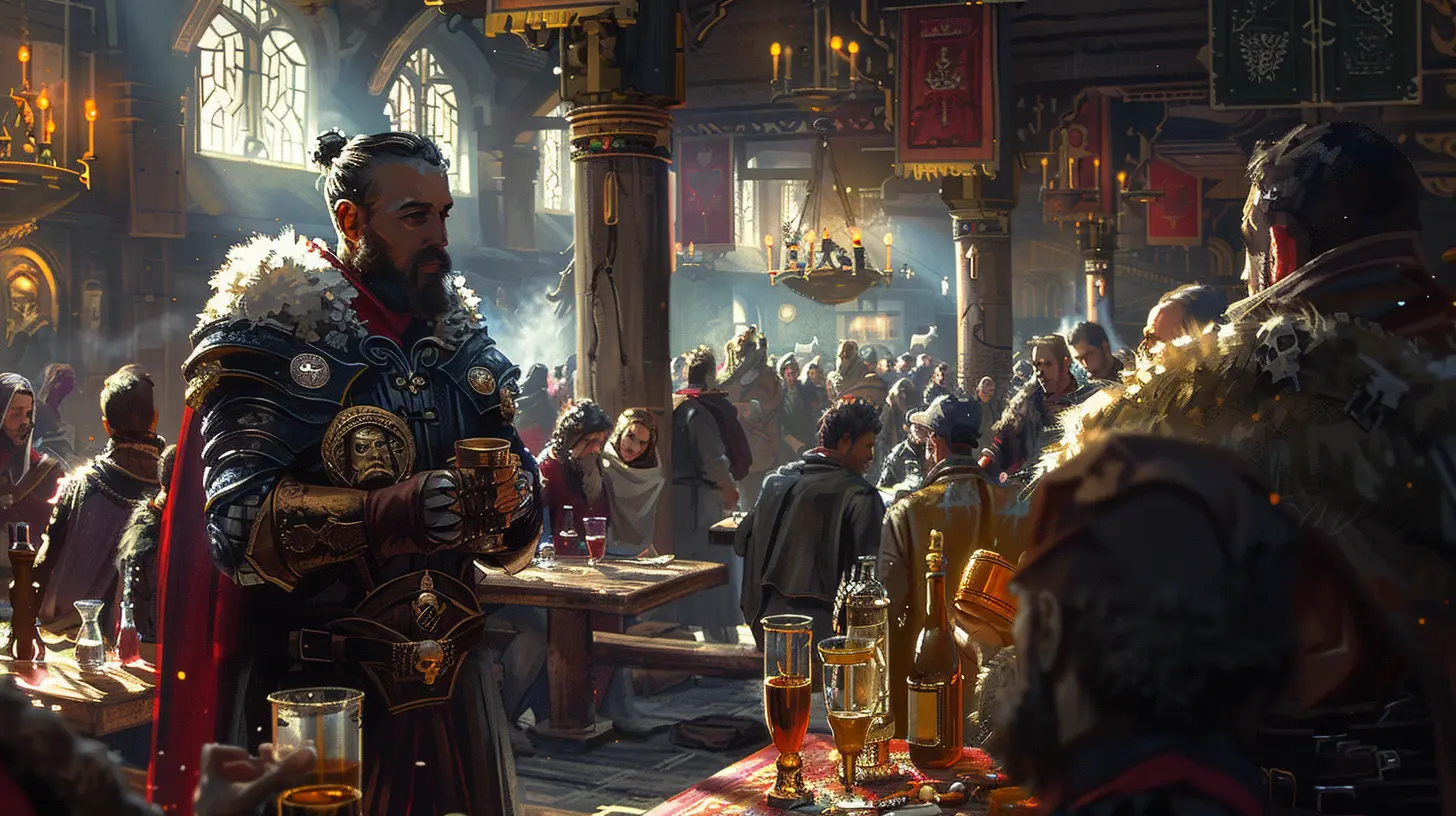
The Spark of an Idea: Where It All Begins
Let’s be real—game development is all about creativity. So, unsurprisingly, the first step in designing an event starts with brainstorming. Game studios typically gather their team of writers, designers, and developers to toss ideas around like a group of friends suggesting toppings for pizza.You’d think these brainstorming sessions are all fun and games (pun intended), but they’re also super challenging. Teams have to answer tough questions like:
- What does the player base really want?
- Will this event align with the game’s overall theme or lore?
- How can the event feel fresh without alienating long-time players?
Sometimes, inspiration can come from unexpected places. A trending meme? A successful real-world event? Even fan-made content can spark ideas. The goal is to create something players will absolutely love while staying true to the brand’s identity.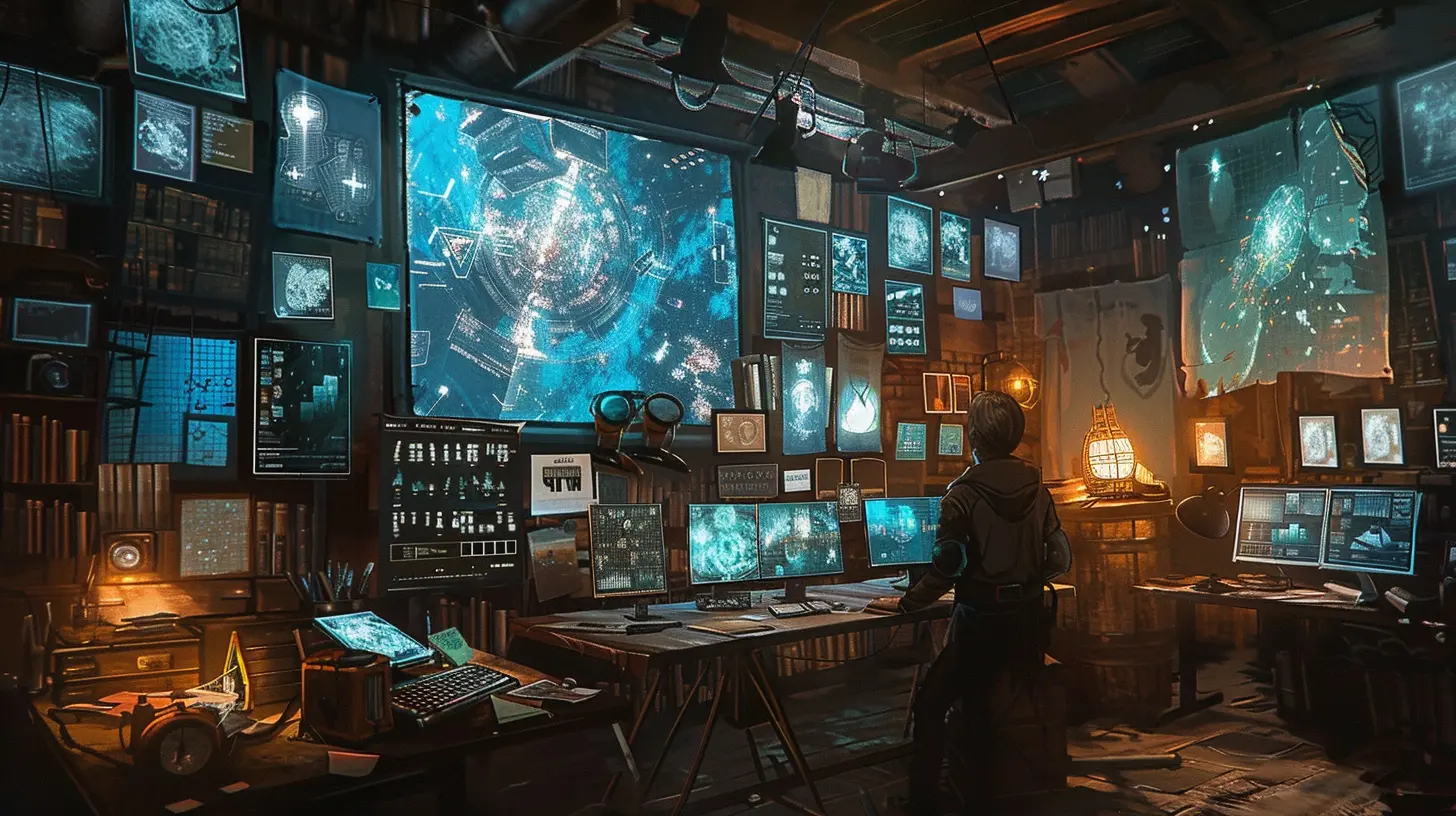
Balancing FOMO and Accessibility: A Tightrope Walk
If you’ve been part of an in-game event, you’ve likely felt the fear of missing out (FOMO) when there’s exclusive, limited-time content. Maybe it’s that shiny new skin or a rare weapon that will never return. These incentives drive players to participate, but here’s the thing: developers have to be careful not to alienate casual players.Instead of locking cool rewards behind impossible challenges, many devs these days aim for a middle ground. They want people to feel the urgency without making the experience overly stressful. It's kind of like hosting a party—you want everyone to have fun, but you also want a few exclusive moments to make the core attendees feel special. It’s a tricky balance, and not everyone gets it right.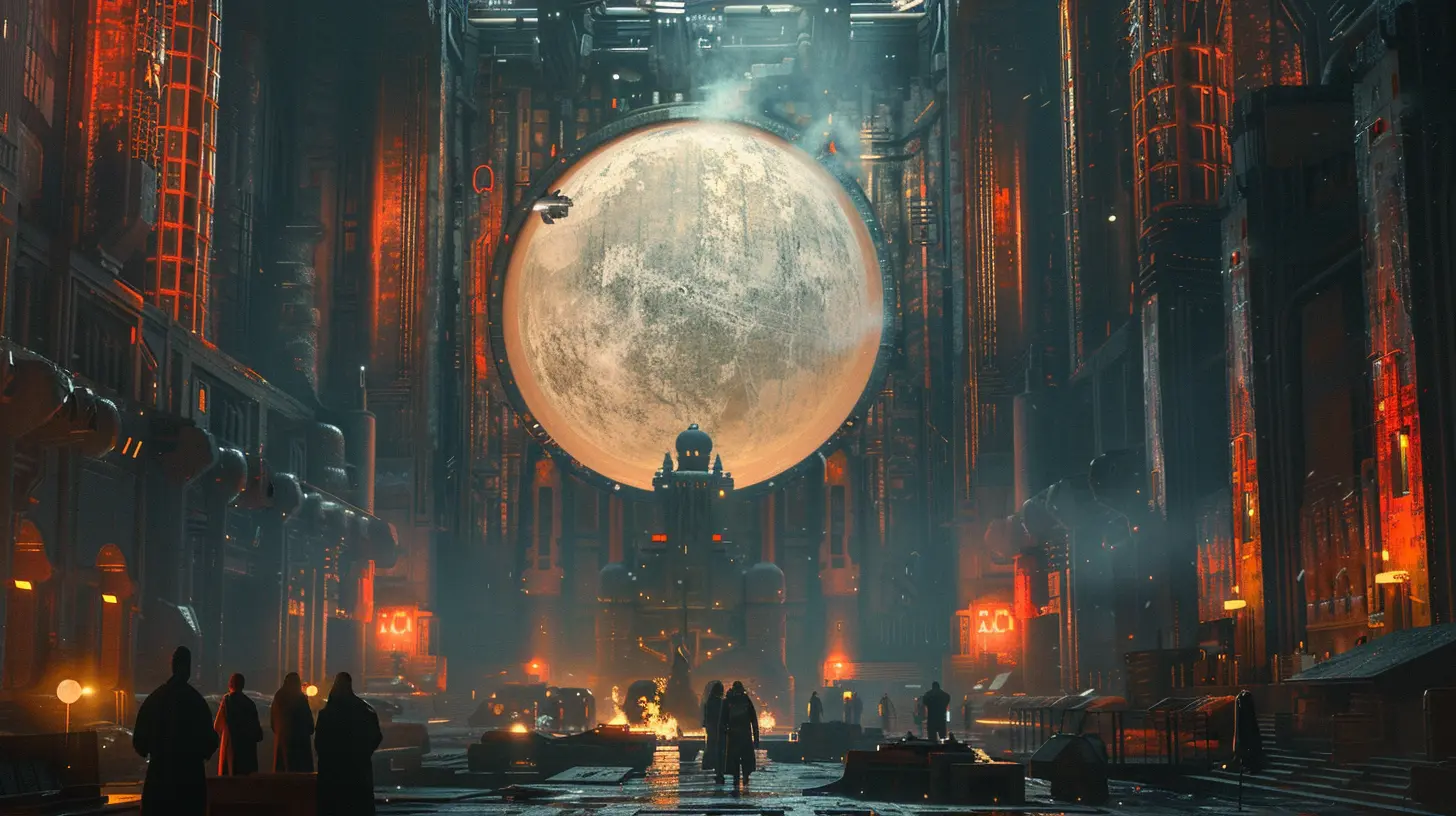
The Planning Stage: More Complex Than It Looks
Planning an event for a game is like planning a wedding—only instead of dealing with florists and caterers, you’re working with coders and servers. Every department in a studio plays a role. Here’s a sneak peek into what goes into the planning phase:1. Event Concept and Mechanics
What type of event will it be? It could be anything from a simple XP boost weekend to a massive narrative-driven questline. Developers carefully lay down the rules, mechanics, and rewards. This stage also involves deciding how the event will work within the existing game infrastructure. For example, will it be a solo experience? Or something multiplayer-focused?2. Visual and Audio Design
Here’s where things get flashy. The art team creates new assets, whether it’s character skins, backgrounds, or event logos. The audio team steps in to produce custom soundtracks or effects, giving players that immersive "wow" factor. For instance, who doesn’t love that special theme music during in-game holidays? It’s like hearing "Jingle Bells" in December—instant vibes.3. Tech and Coding
The unsung heroes, the programmers, step in to make sure everything works seamlessly. We’re talking about building new features, squashing bugs, and ensuring the event doesn’t crash the servers. This step is crucial because, let’s face it, no one wants an event plagued by technical hiccups. (Looking at you, matchmaking lags!)Testing: The Secret Sauce
Here’s a dirty little secret—not everything works the first time around. In fact, most events go through several rounds of testing to iron out kinks. This is where Quality Assurance (QA) teams save the day. These folks spend hours (and we’re talking serious hours) poking and prodding every aspect of an event to ensure it’s ready for the spotlight.Ever experienced a glitch or exploit during an event? That’s what studios try to avoid. No one wants players cheesing a boss fight or farming infinite rewards due to a bug. Testing is also when devs gauge the difficulty level. Is the event too hard? Too easy? Finding that balance can feel like solving a Rubik’s Cube blindfolded.
The Community Connection: Listening Matters
Here’s something developers know all too well: if the community isn’t happy, the event is DOA (dead on arrival). That’s why modern game studios go out of their way to listen to player feedback. Social media, forums, and even in-game surveys are common tools to gauge community sentiment.But here’s the twist—players don’t always agree on what they want. You’ll have hardcore fans demanding ridiculous challenges while casual players beg for something chill. Developers often tread a fine line between catering to both groups. They know they can’t please everyone, but they sure as heck try.
Ever notice how some games even involve players in event planning? Platforms like Discord and Reddit are riddled with polls, sneak peeks, and even conversations with developers themselves. It’s a two-way street, and when done right, it forges a connection that makes players feel heard.
The Launch: Showtime!
When the big day arrives, it’s all hands on deck. Developers monitor the event like hawks to ensure everything runs smoothly. If something goes wrong—and let’s be honest, it often does—post-launch hotfixes are deployed to save the day.Events are also heavily marketed before and during their launch. Studios roll out trailers, social media campaigns, and influencer partnerships to drum up excitement. It’s kind of like hyping up a blockbuster movie—you want everyone talking about it.
Post-Mortem: What Worked, What Didn’t?
Once the dust settles, studios conduct a "post-mortem" to reflect on the event. What went well? What could’ve been better? Did players love it, hate it, or feel indifferent? This feedback isn’t just filed away and forgotten—it actively shapes future events.For instance, many developers track player participation rates and engagement numbers. If an event drastically increases daily log-ins or revenue via microtransactions, you can bet they’ll replicate some aspects of it down the line. Conversely, if players didn’t vibe with certain mechanics, those will likely get scrapped or reworked.
Why It’s All Worth It
If you’re thinking, “This sounds like a never-ending headache,” you’re not wrong. Designing gaming events is intense, high-pressure, and often thankless. But here’s the thing—when everything clicks, it’s pure magic. Players get to escape into a world crafted just for them, even if only for a fleeting moment. And for developers, seeing their hard work come to life in the form of happy, engaged players? That’s the ultimate reward.Conclusion
Game developers’ event design involves so much more than meets the eye. From brainstorming concepts to balancing FOMO, crafting visuals, coding mechanics, testing, and listening to feedback, it’s a true labor of love. The next time you log into an in-game event, take a moment to appreciate the sheer effort that went into it. Behind every dragon raid or virtual concert lies a dedicated team pouring their heart and soul into making it unforgettable.all images in this post were generated using AI tools
Category:
In Game EventsAuthor:

Aurora Sharpe
Discussion
rate this article
2 comments
Dakota McQuade
Behind every epic game event is a team of developers who probably ran on caffeine and panic. Bet they’ve got more ‘what could go wrong’ lists than actual game design docs! 🎮☕️
November 3, 2025 at 6:15 PM

Aurora Sharpe
Absolutely! The creative chaos of game development often fuels innovation, and those lists of potential pitfalls are invaluable in crafting unforgettable experiences. 🎮✨
Zayla Flores
Thank you for highlighting the hard work behind events!
July 10, 2025 at 5:12 AM

Aurora Sharpe
You're welcome! I'm glad you appreciated the effort that goes into event design.
